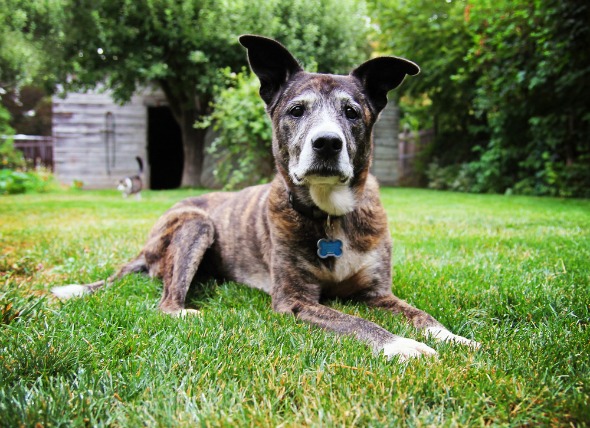

The prostate gland is an important part of the male reproductive system. It contains many valuable and essential enzymes, including calcium and citric acid,and also plays an important role in the protection and motility of sperm. The liquid secreted by the prostate gland aids in the liquefaction of semen after ejaculation, and in the protection of sperm in the vagina.
Adenocarcinoma is a malignant tumor originating in the glandular tissue, in this case the tissue of the prostate gland, with the capability for growing and metastasizing rapidly to other parts and organs of body, including the lungs, bones, and lymph nodes. Prostatic adenocarcinoma is seen in both intact and neutered dogs, representing about one percent of all malignant tumors found in dogs. This disease can develop in any breed, but it most commonly affects large breeds, and like most carcinomas, it affects older dogs between the ages of 9-10 years.
In adenocarcinoma of the prostate, the symptoms may vary depending upon the presence, extent, and location of metastasis to other parts of the body. Following are the symptoms commonly seen in adenocarcinoma of prostate:
You will need to give a thorough history of your dog's health, including a background history of symptoms. Your veterinarian will perform a complete physical examination on your dog, including blood tests and a biochemistry profile. Urine tests are an important part of the diagnostic process. The urine will be examined for the presence of white blood cells, infection, and malignant cells. Abdominal radiographs and ultrasonography will also be performed to view the symmetry, size, and outline of the prostate gland. Prostate tissue will also be taken by prostatic biopsy to confirm the diagnosis.
There is no single definitive treatment for dogs with adenocarcinoma of the prostate gland. Radiotherapy and chemotherapy are sometime the chosen therapy for dogs and may increase the survival time. Treatment should be conducted and supervised by a veterinary oncologist. Due to the close association of the prostate gland with the urethra, removal of the prostate gland by surgery is difficult and mostly unrewarding. In addition, postoperative complications are high and difficult to manage. An alternative solution to disorders of the prostate, castration, does not help with adenocarcinoma of the prostate, as this tumor does not respond well afterward.
For dogs suffering from adenocarcinoma of the prostate, many face permanent difficulties with urination and defecation. Inability to urinate and defecate properly is often accompanied by severe pain, restlessness and great discomfort. Observe your dog especially during its urination and defecation routines and inform your veterinarian if your dog is not able to pass urine or feces effectively. Follow your veterinarian's guidelines, especially in giving chemotherapeutic agents at home. Many chemotherapeutic agents can be hazardous to your health if not handled properly; consult with your veterinarian on the best handling practices. During this period you can improve your dog's quality of life by providing extra comfort and affection.
 Iris Cysts
Iridociliary Cysts in Dogs
Sometimes referred to
Iris Cysts
Iridociliary Cysts in Dogs
Sometimes referred to
 Mouth Cancer in Dogs
Undifferentiated Oral Cavity Tumors in Dogs
Undif
Mouth Cancer in Dogs
Undifferentiated Oral Cavity Tumors in Dogs
Undif
 Yeast Infection and Thrush in Dogs
Candidiasis in Dogs
Candida is a type of su
Yeast Infection and Thrush in Dogs
Candidiasis in Dogs
Candida is a type of su
 Nerve/Muscle Disorder in Dogs
Myasthenia Gravis in Dogs
Myasthenia gravis is a
Nerve/Muscle Disorder in Dogs
Myasthenia Gravis in Dogs
Myasthenia gravis is a
 Heart Attack in Dogs
Myocardial Infarction in Dogs
Much like in humans
Heart Attack in Dogs
Myocardial Infarction in Dogs
Much like in humans
Copyright © 2005-2016 Pet Information All Rights Reserved
Contact us: www162date@outlook.com